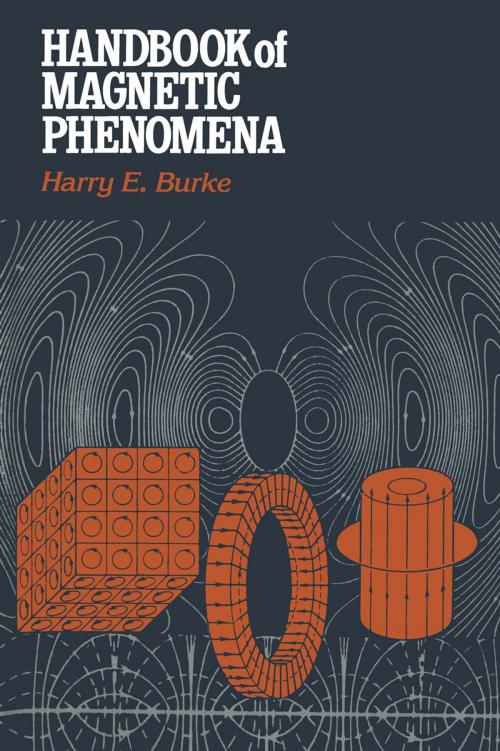Handbook of Magnetic Phenomena
Kids, Natural World, Nonfiction, Reference & Language, Education & Teaching, Science & Nature, Science| Author: | Harry E. Burke | ISBN: | 9789401170062 |
| Publisher: | Springer Netherlands | Publication: | December 6, 2012 |
| Imprint: | Springer | Language: | English |
| Author: | Harry E. Burke |
| ISBN: | 9789401170062 |
| Publisher: | Springer Netherlands |
| Publication: | December 6, 2012 |
| Imprint: | Springer |
| Language: | English |
The general theory of magnetism and the vast range of individual phe nomena it embraces have already been examined in many volumes. Spe cialists hardly need help in charting their way through the maze of pub lished information. At the same time, a nonspecialist might easily be discouraged by this abundance. Most texts are restricted in their coverage, and their concepts may well appear to be disorganized when the uninitiated attempt to consider them in their totality. Since the subject is already thoroughly researched with very little new information added year by year, this is hardly a satisfactory state of affairs. By now, it should be possible for anyone with even a minimum of technical competence to feel com pletely at home with all of the basic magnetic principles. The present volume addresses this issue by stressing simplicity-sim plicity of order and simplicity of range as well as simplicity of detail. It proposes a pattern of logical classification based on the electronic con sequences that result whenever any form of matter interacts with any kind of energy. An attempt has been made to present each phenomenon of interest in its most visually graphic form while reducing the verbal de scription to the minimum needed to back up the illustrations. This might be called a Life magazine type of approach, in which each point is prin cipally supported by a picture. The illustrations make use of two (perhaps unique) conventions.
The general theory of magnetism and the vast range of individual phe nomena it embraces have already been examined in many volumes. Spe cialists hardly need help in charting their way through the maze of pub lished information. At the same time, a nonspecialist might easily be discouraged by this abundance. Most texts are restricted in their coverage, and their concepts may well appear to be disorganized when the uninitiated attempt to consider them in their totality. Since the subject is already thoroughly researched with very little new information added year by year, this is hardly a satisfactory state of affairs. By now, it should be possible for anyone with even a minimum of technical competence to feel com pletely at home with all of the basic magnetic principles. The present volume addresses this issue by stressing simplicity-sim plicity of order and simplicity of range as well as simplicity of detail. It proposes a pattern of logical classification based on the electronic con sequences that result whenever any form of matter interacts with any kind of energy. An attempt has been made to present each phenomenon of interest in its most visually graphic form while reducing the verbal de scription to the minimum needed to back up the illustrations. This might be called a Life magazine type of approach, in which each point is prin cipally supported by a picture. The illustrations make use of two (perhaps unique) conventions.















